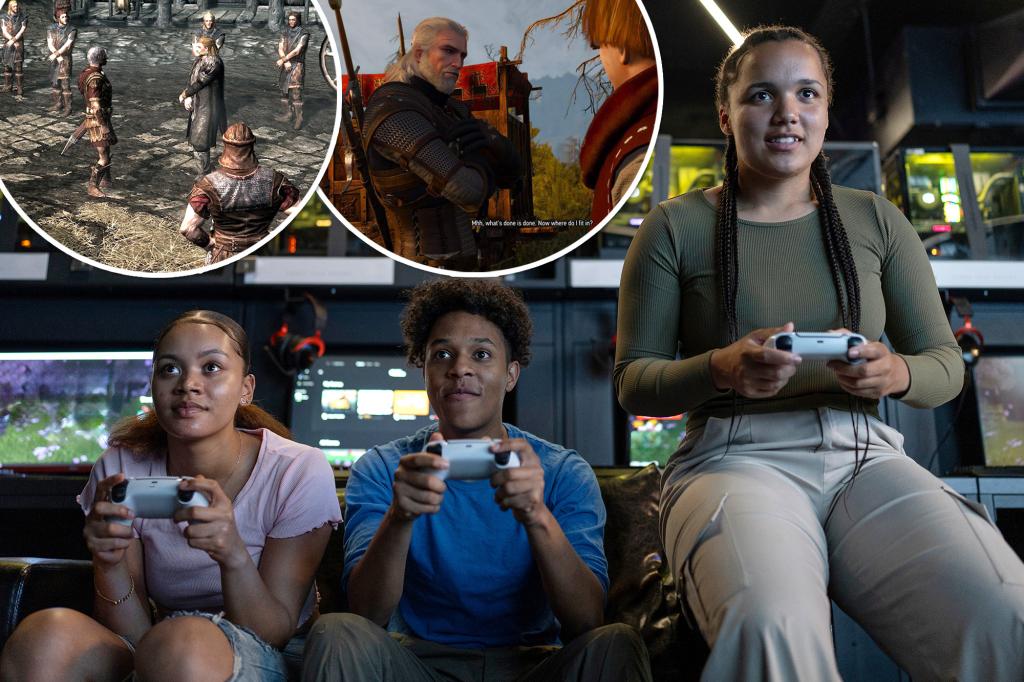Gen Z has incorporated video game slang into their everyday language, creating a shared cultural knowledge that allows them to express their reality. Linguistics expert Adam Aleksic explains that these gaming terms are similar to sports metaphors or words originating from chess, as they serve as a way for people to best understand each other. While terms like “NPC” and “sidequest” may currently be used ironically, they could gain a more serious connotation in the future, highlighting the importance of knowing these additions to the unofficial Gen Z dictionary.
One example of gaming slang is “NPC,” which stands for non-player character and is used to describe someone who is boring or lacks independent thinking in real life. Another term is “sidequest,” which refers to additional hobbies or tasks unrelated to a person’s primary occupation or interests. Both of these terms have crossed over from the gaming world into everyday language, demonstrating the influence of video games on Gen Z’s lexicon.
The term “nerf,” derived from Nerf blasters, is used to describe something being reduced in effectiveness, both in online gaming and in real life situations. Another example is “where we dropping?” which originated in games like Fortnite, where players strategize about where to land on the virtual map for success. In real life, this question has been adapted to ask about plans or destinations, showing how gaming slang has permeated common conversation among Gen Z.
Aleksic’s viral video on gaming-inspired slang sparked viewers to share their own terms, such as “low on HP” to describe feeling tired, or “lore” to refer to someone’s backstory. This expanding list of colloquialisms includes terms like “gyatt,” “IJBOL,” and “menty b,” showcasing the internet-savvy generation’s love for unique language. While this slang may be confusing to older generations, its popularity among Gen Z demonstrates the evolution of language through shared cultural experiences like video games.
Overall, the incorporation of gaming slang into everyday language by Gen Z reflects a shift towards shared cultural knowledge through shared traditions such as video games. By adapting terms like “NPC” or “sidequest” into everyday conversation, younger generations are creating a unique lexicon that serves as a way to better understand each other. As these terms continue to gain traction and evolve, it will be important for individuals of all ages to stay up-to-date on the latest additions to the unofficial Gen Z dictionary to effectively communicate in a rapidly changing linguistic landscape.


